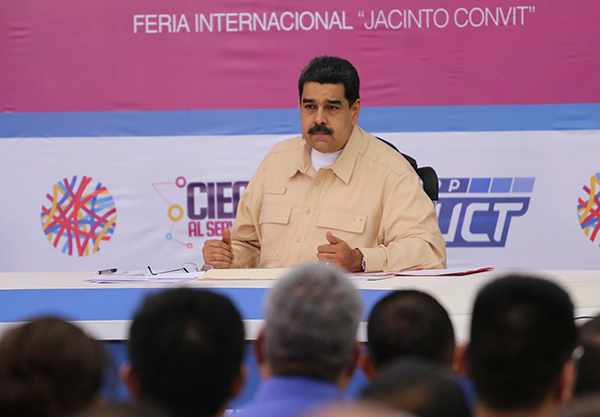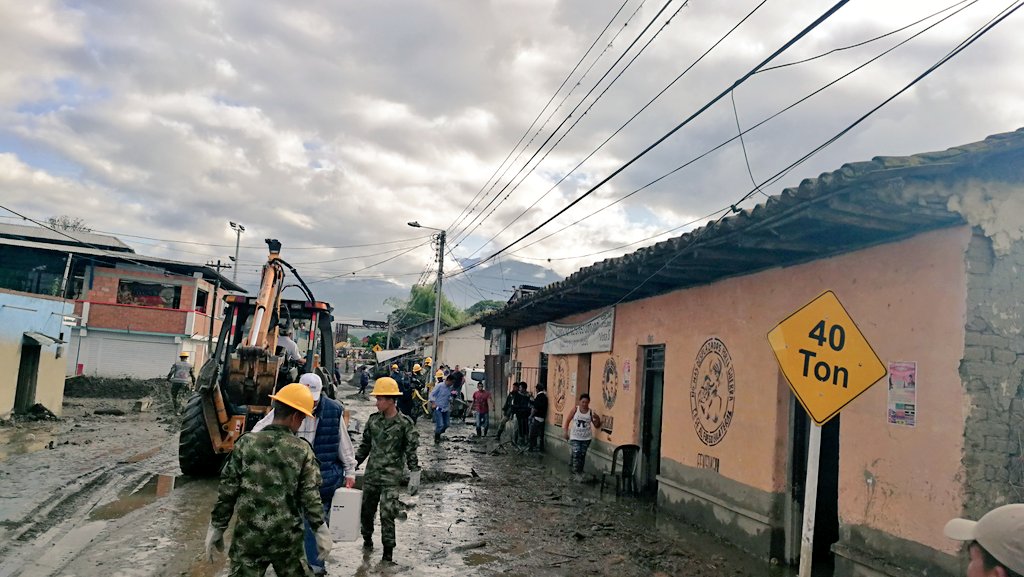
Wednesday’s resignation of Nestor Humberto Martínez, Colombia’s Attorney General, took the country by surprise. His departure was a result of the ruling by the Special Jurisdiction for Peace (JEP) not to approve an extradition request from the United States due to lack of evidence. The vacancy at the country’s highest law enforcement position combined with skepticism on the JEP’s decision and key controversial rulings pending in other courts sets the stage for a seismic shift for the country’s judicial system – which is currently lacking legitimacy.
The embattled Attorney General submitted his irrevocable resignation video Wednesday after the Special Jurisdiction for Peace (JEP), the country’s transitional justice tribunal, ruled that it would not approve the extradition to the United States of Seuxis Paucias Hernández, otherwise known as Jesús Santrich, on charges to conspire to traffic drugs to the United States. Since the resignation the country’s judicial institutions have been shaken by subsequent events: President Iván Duque called for a national pact to introduce broad judicial reform (even after his objections to the JEP are currently being reviewed by the Constitutional Court after Congress rejected them), and Gloria María Botero, the Minister of Justice, also presented her resignation, and there were versions of events that suggested Duque may declare a national emergency.
Martinez’s resignation, along with the drama that ensued after video evidence surfaced demonstrating Santrich’s involvement in drug trafficking, strongly discredit the JEP and its decision to release an apparently guilty man. However, as the JEP did not include that evidence – the legality of its obtainment is being questioned – its decision has raised eyebrows, particularly among those who are intent on eliminating it altogether.
Politicized judicial system
The Attorney General’s resignation is a significant development, not just because of the way in which it was done, but in its timing. Martinez used his resignation to cement the politicization of the Fiscalía. His overt disdain for the JEP – a keystone of the peace agreement – predated Duque’s inauguration but intensified thereafter giving the ruling party the ally it needed to substantiate their objections to the JEP – which caused significant disarray thereafter and promises to be a defining element in the debate ahead of the local elections.
Martinez’s resignation letter also called for a mass protest to take place in support of the integrity of the judicial system – but was widely viewed to be a call for support for his decision to resign. A member of the judicial branch should be politically impartial despite the political weight his decisions undoubtedly carry. Martinez was all too eager to blur that line which has provoked speculation among analysts that he may eventually run for office.
Justice questioned
Most worryingly, Martinez’s resignation casts doubt on the integrity of the JEP. Had the transitional justice court received the video evidence that later surfaced online, which clearly shows Santrich and undercover DEA agents discussing specific details of a future cocaine shipment to the United States, it may have ruled to allow extradition. However it did not have access to that evidence, and there are important questions on whether the evidence itself was legally obtained – which could make it inadmissible in a court of law.
However, since the JEP was not given the evidence and it did not have enough basis to prove that Santrich did indeed commit a crime after the signature of the agreement, it ruled to release him. Therefore, before the court of public opinion, the JEP released a guilty man. There are speculations that this is exactly what opponents of the JEP wanted – since extraditing Santrich on the grounds that he committed a crime after the signature of the agreement would be proof that the JEP would live up to its promise of ruling impartially and delivering justice where it is due.
Aside from the Santrich decision, there are important pending judicial rulings that will be critical to the credibility of the system as a whole. The Constitutional Court must rule on the use of glyphosate as well as President Duque’s objections to the JEP – which have made extreme right-wing politicians supporters cast doubt on the integrity of the Court’s magistrates. Moreover, Gustavo Malo, the former president of the Supreme Court – which is scheduled to hear a case against former president Alvaro Uribe – was arrested on corruption charges. Finally, the State Council has been issuing controversial decisions that removed members of the opposition and members of the governing coalition from their congressional seats.
If not a constitutional crisis, what’s next?
Many observers argue that Colombia is facing an institutional crisis, that can’t be further away from the truth. Its institutions are working, just not the way some members of the political establishment believe they should be working; the courts are facing a credibility crisis.
Duque’s calls for a broad judicial reform are likely to fall on deaf ears. The president has been unable to pass major portions of his legislative agenda, and time is running out for congress to attend urgent business in what remains of this legislature. What is clear is that the judicial system – including the Constitutional Court, the Supreme Court, the State Council, and the JEP- – is suffering from a widespread lack of legitimacy. The way forward supposes more judicial turmoil as the country attempts to reach a balance between justice and peace.
Sergio Guzmán is the Director of Colombia Risk Analysis, a political risk consulting firm based in Bogotá. Follow him on twitter @serguzes and @ColombiaRisk
This opinion column is intended as a space to discuss some of the most pressing issues faced by Colombia and the region in these uncertain times. All opinions and content are solely the opinion of the author and do not represent the viewpoints of The Bogotá Post.





